- Histoplasmosis is a fungal infection caused by Histoplasma capsulatum, a dimorphic fungus found in soil contaminated with bird or bat droppings.
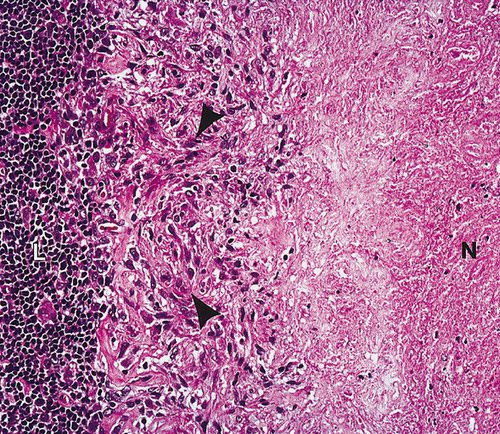
Rossi et al Radiographics
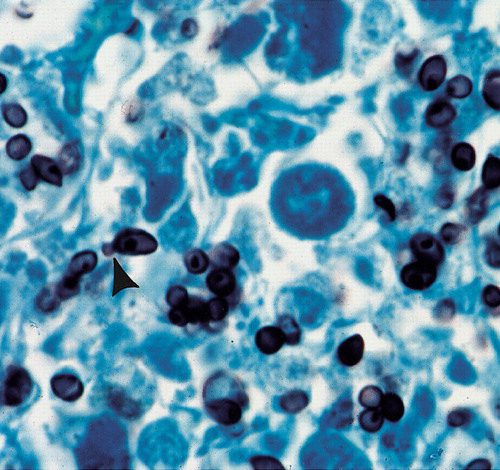
Oil immersion photomicrograph (original magnification, ×500; Grocott methenamine-silver stain) shows small oval-shaped yeasts of H capsulatum. Note the rare budding forms (arrowhead).
Rossi et al Radiographics
- The infection is usually acquired by inhaling spores from the fungus, which can cause a lung infection (pulmonary histoplasmosis).
- Most people with histoplasmosis have no symptoms or only mild symptoms, which can include fever, cough, and fatigue.
- In severe cases, the infection can cause pneumonia, chest pain, shortness of breath, and coughing up blood.
- Histoplasmosis can also spread to other organs in the body, such as the liver, spleen, and bone marrow, causing disseminated histoplasmosis, which can be life-threatening if left untreated.
- Diagnosis of histoplasmosis is typically based on a combination of symptoms, medical history, and laboratory tests, such as blood tests, chest X-ray, and fungal cultures.
Acute Histoplasmosis
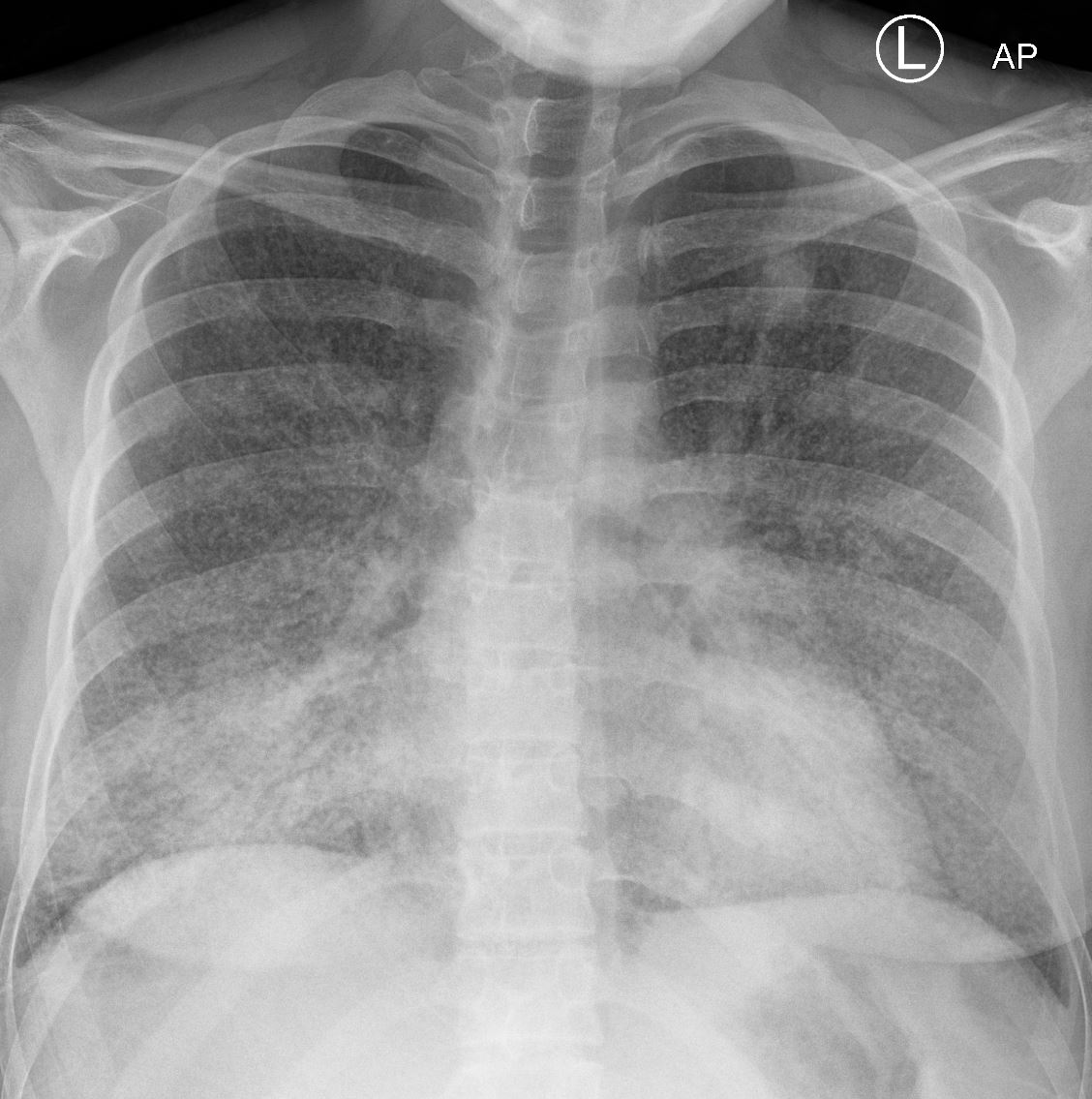
22-year-old female presents with flu like symptoms shows extensive micro-nodularity dominantly in the lower lung fields and a nodule in the right upper lobe
A week later she was admitted to the ICU with confluent pneumonic infiltrates with air bronchograms in the lower lobes.
Later that month her CXR started to improve but still showed military disease.
A CXR 9 months later shows resolution.
Ashley Davidoff MD
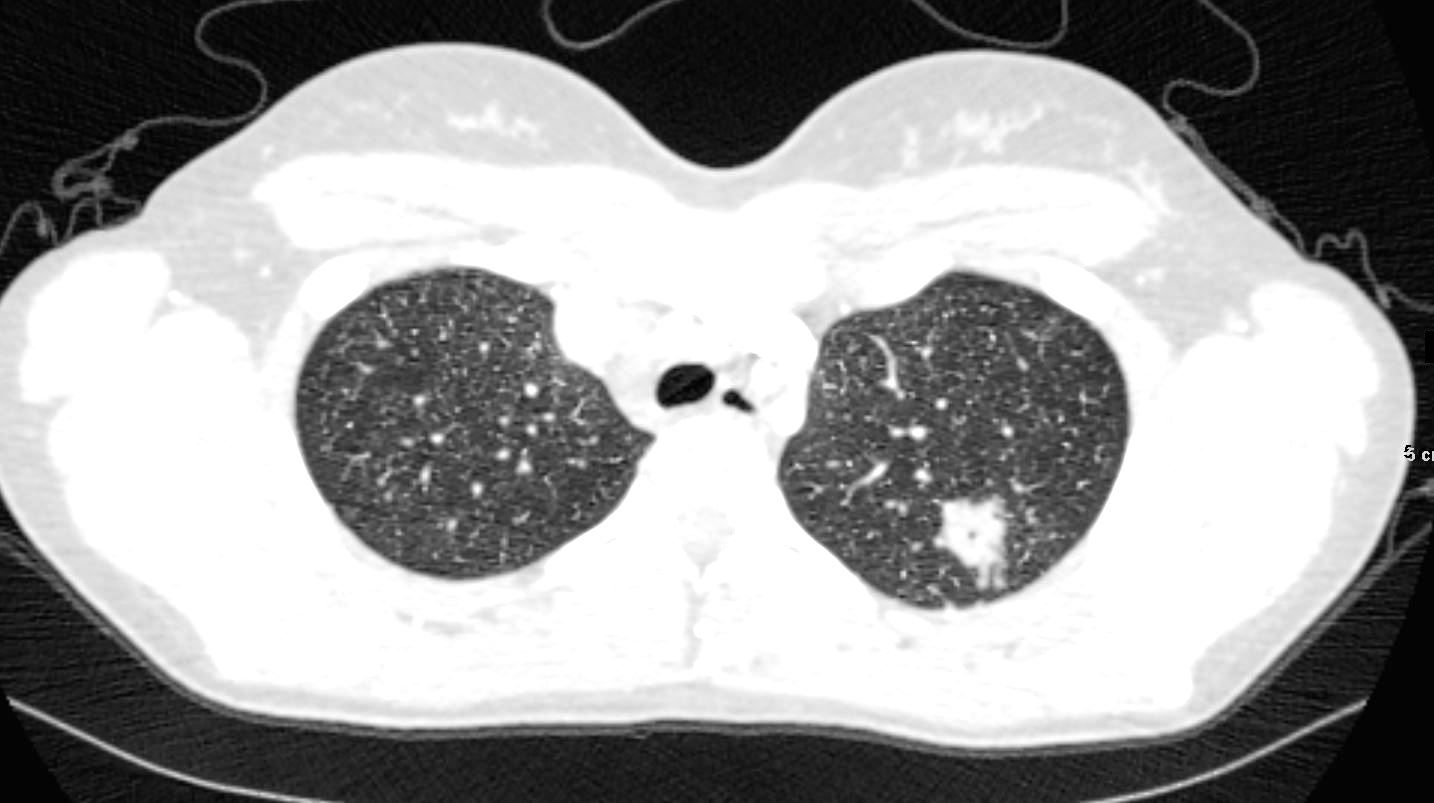
22-year-old female presents with flu like symptoms and had a normal CXR 3 weeks prior.
CT shows extensive diffuse bilateral micronodular miliary disease and a cavitating nodule in the LUL.
Ashley Davidoff MD TheCommonVein.net
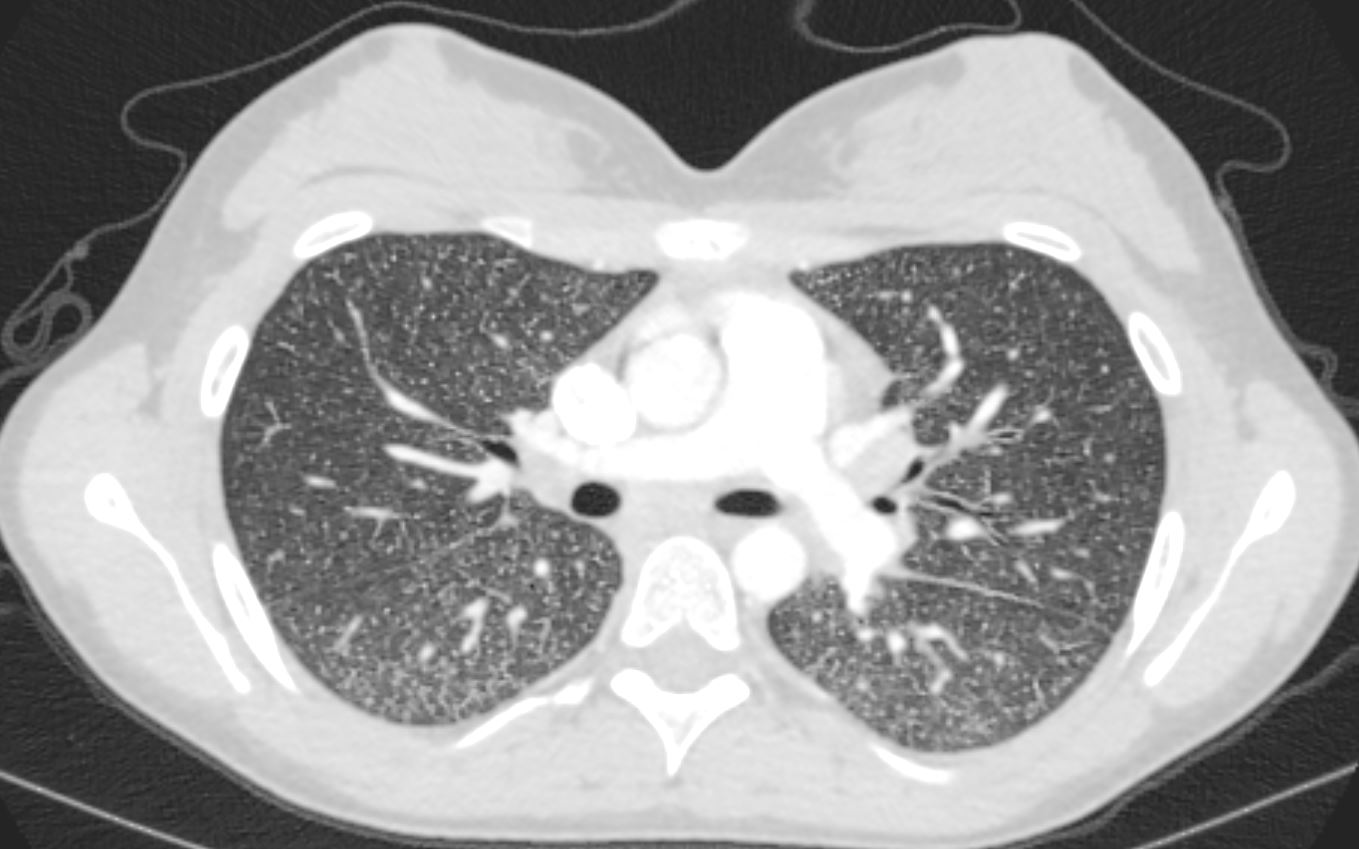
CT shows extensive diffuse bilateral micronodular miliary disease
Ashley Davidoff MD TheCommonVein.net
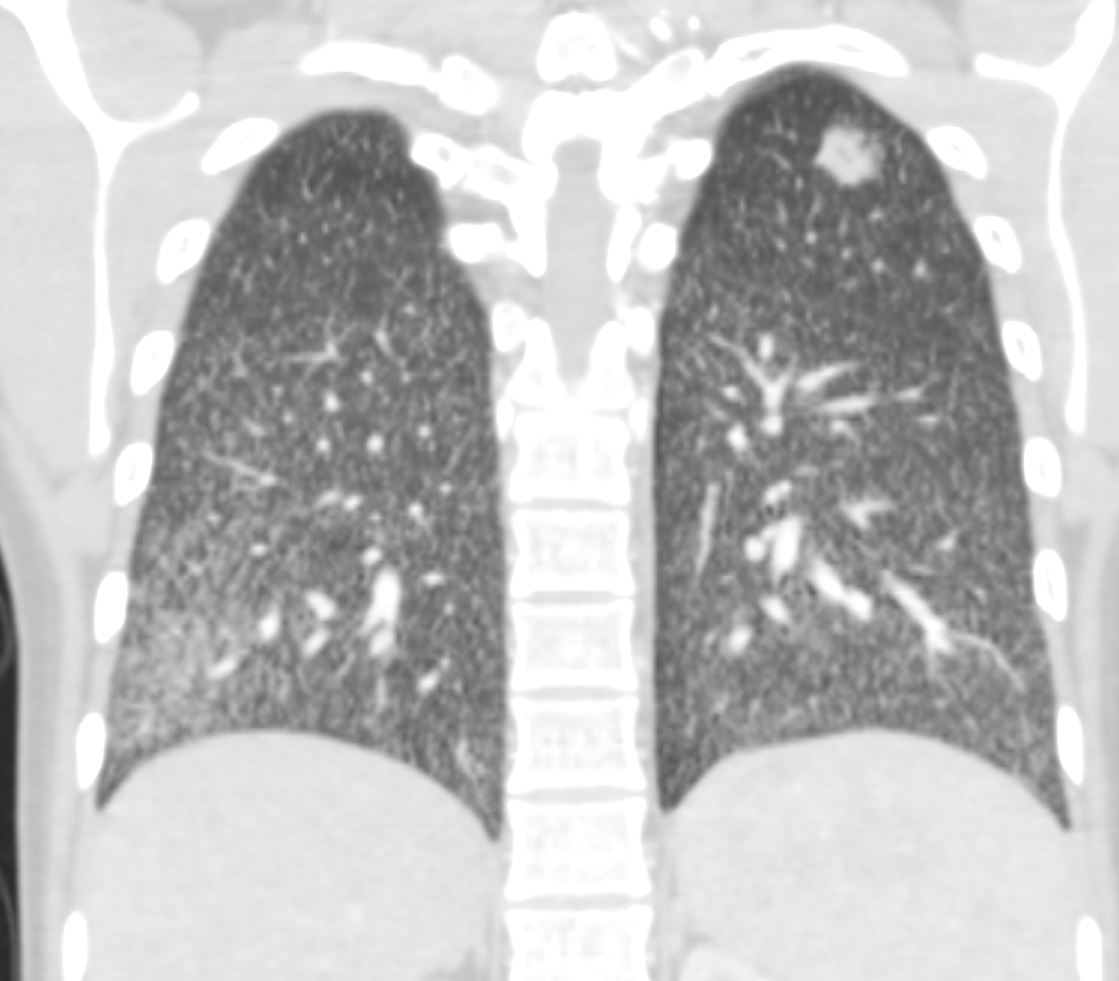
CT shows extensive diffuse bilateral micronodular miliary disease and a cavitating nodule in the LUL. Ashley Davidoff MD TheCommonVein.net
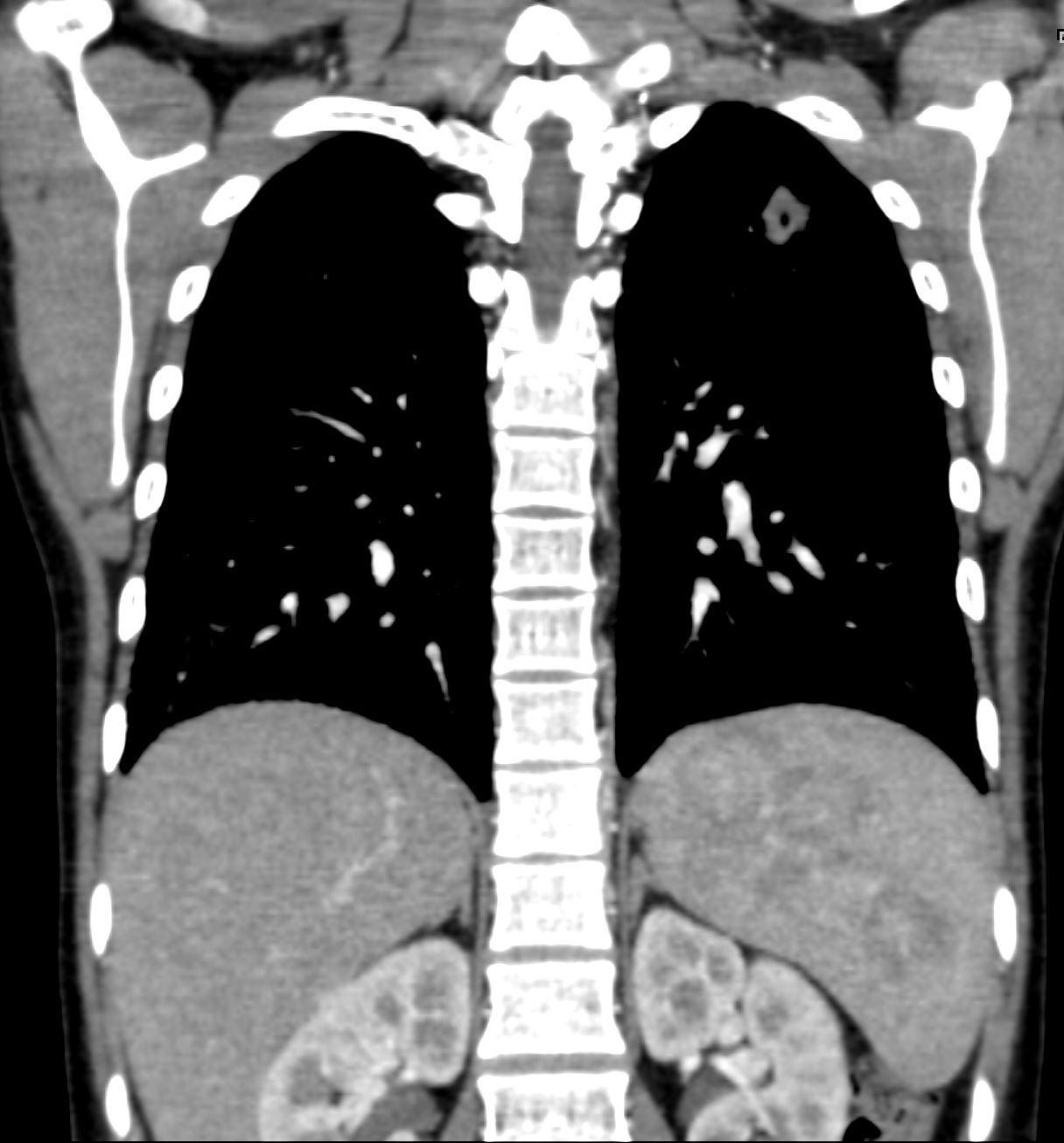
22-year-old female presents with flu like symptoms CT shows LUL cavitating nodule and hepatosplenomegaly with heterogeneous spleen.
Ashley Davidoff MD TheCommonVein.net
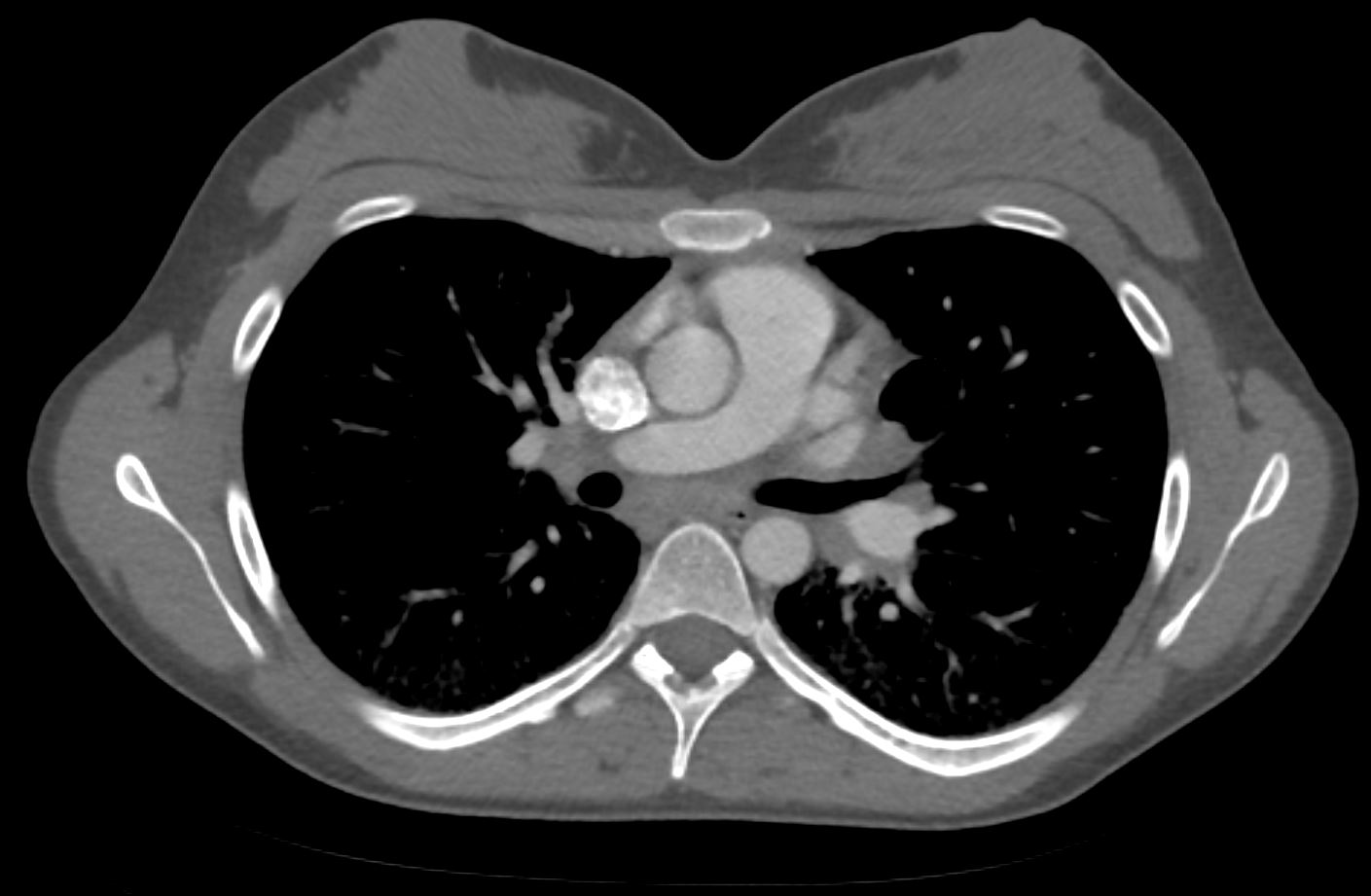
22-year-old female presents with flu like symptoms CT shows mediastinal lymphadenopathy,
Ashley Davidoff MD TheCommonVein.net
- Treatment of histoplasmosis depends on the severity of the infection and may include antifungal medication, such as itraconazole or amphotericin B, and supportive care.
- Prevention of histoplasmosis involves avoiding exposure to soil or materials contaminated with bird or bat droppings, wearing protective clothing when working in areas where the fungus may be present, and using appropriate respiratory protection.
